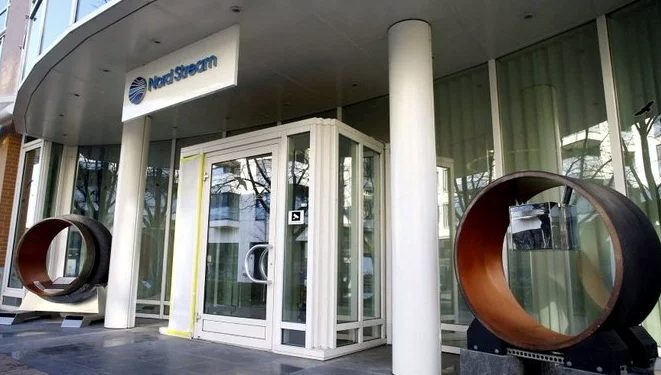Arab News
European energy security has been a crucial item of concern since the outbreak of the Ukraine crisis in February. However, in recent weeks, it has become even more visible that the venue of the battlefield has been moved to the energy plane.
It was in June that Russia, citing the delayed return of a turbine serviced by Siemens Energy in Canada, cut gas flow via the Nord Stream 1 pipeline — the usual route for Gazprom’s supply to Europe — from 60 percent capacity to 40 percent. Then, in July, Moscow shut the pipeline entirely for 10 days for annual maintenance, restarting it on July 21.
In Europe, it is commonly believed that problems with turbines cannot be the real reason for the drop in gas flow. The Russian side has repeatedly stressed that the reduction in supplies via Nord Stream 1 is due solely to the West’s sanctions, which have caused problems with the repair of gas pumping units. In other words, while Europe considers it political blackmail, the Kremlin stresses it is “not interested” in completely cutting off its gas deliveries to Europe.
These events have already raised concerns and had implications, such as the high prices for energy and electricity in Europe. In Norway, electricity prices have hit a record high, exceeding the threshold of 4 kroner ($0.42) per kilowatt. The country’s minister of oil and energy warned there is a risk, albeit a small one, that electricity rationing could be introduced.
In the UK, the operator of the National Grid is also predicting “tight” periods of electricity supply this winter. British energy bills could soar to £3,850 ($4,716) a year by January due to cuts in Russian gas supplies. The shortage of energy has also led governments to move to secure reserves in case of emergency, as in Austria, which has secured a state reserve of gas that would last about three months.
Due to its heavy dependence on Russian gas, the most affected country in this crisis is Germany. Among the measures enacted in Germany to support struggling gas importers is a surcharge that will be levied on all consumers from October until 2024, which for a household of four will add up to a significant additional cost. The difficult economic situation has led to internal divisions too. The mayors of seven small towns on the island of Rugen have made an appeal to the federal government to bring the unused Nord Stream 2 pipeline into operation to ensure energy security.
Economically, nonetheless, Germany’s failure to address the issue will directly affect other nations as, given their co-dependency, the European crisis is essentially circular: A recession in Germany, the eurozone’s largest economy, would be detrimental for all.
Along with catastrophic economic outcomes for daily life, some experts have even predicted a castling of political forces in Europe. Mario Tadeo of Bloomberg last week stated that, due to Berlin’s reliance on Russia, “the days of Germany knows best are over.” She wrote: “For a decade, Berlin commanded moral and financial authority in the European Union, guiding policy and playing bad cop to the weaker southern economies. The energy crisis has upended that balance.” Among the Southern European states to have more political leverage, the author refers to Spain, which has little exposure to Russia and has invested heavily in renewables. Similarly, Ross Clark wrote in The Spectator: “Germany looks rudderless, because it is now Putin who is setting the timetable. At the current rate it looks unlikely that in two years’ time there will be any Russian gas left for Germany to boycott.” He concluded that “Europe, and especially Germany, is not merely heading for economic turmoil as a result of energy starvation. Putin is managing to make Europe look politically powerless.” While Europe’s press presents such dramatic scenarios regarding the future of Europe due to the energy crisis, the Russian press quotes readers of the French newspaper Le Figaro, suggesting that they refused to consider the actions of the Russian energy giant Gazprom to be “blackmail,” as stated by European politicians. One article stated that many commentators recall that Western politicians, having agreed to introduce anti-Russian policies, should have anticipated an immediate reaction.
Further, as it is common to view the international position through the prism of US policy, Sergey Savchuk of Ria Novosti has stated that Europe is hostage to its own “vassal policy” toward Washington. He added that, on the one hand, the participants in the Western alliance want to blame stubborn and uncompromising Russians. On the other hand, the situation is sharply deteriorating, so if one country demonstrated independence tomorrow and tried to separately negotiate with Moscow on energy supplies, it would immediately be declared a traitor and branded a disgrace. k





